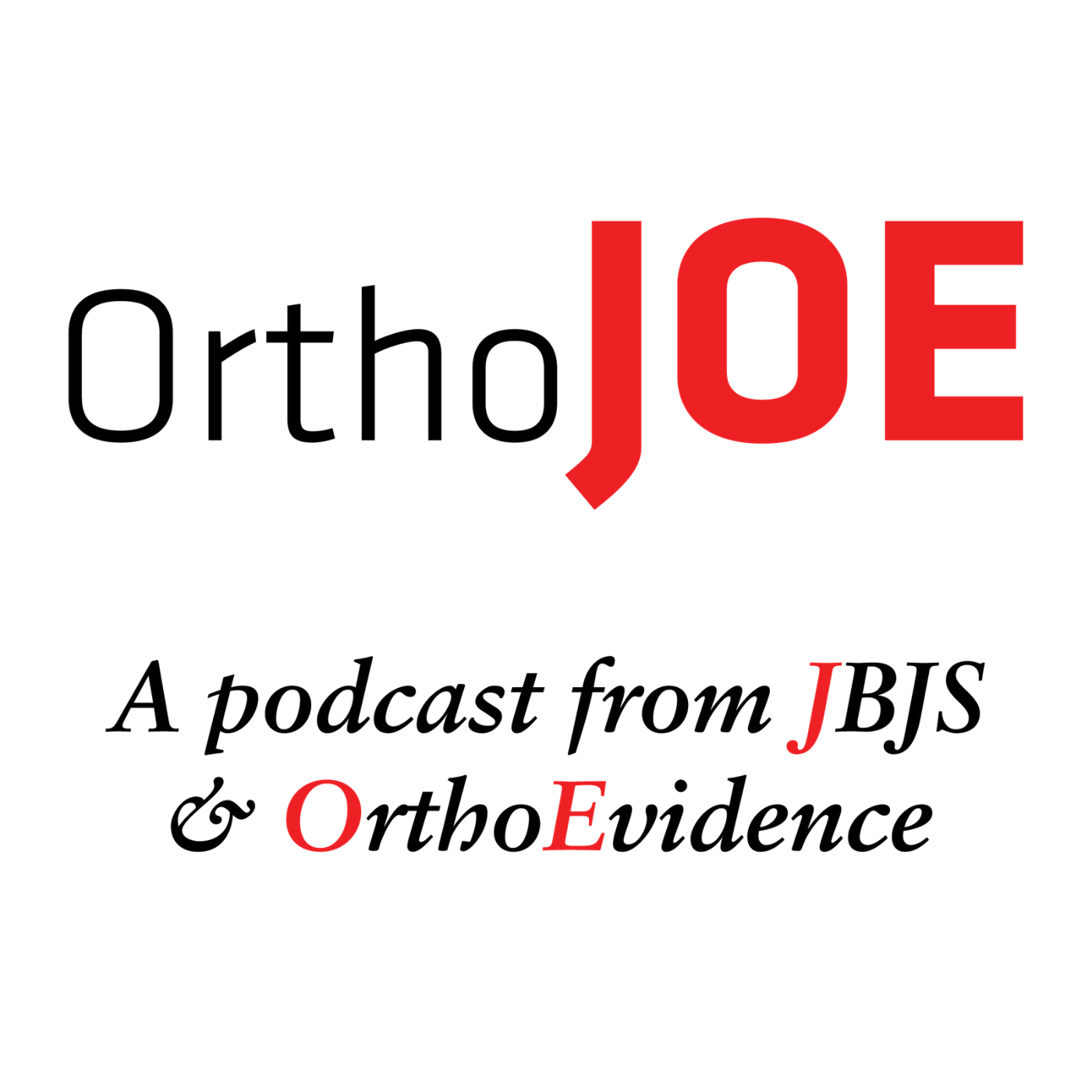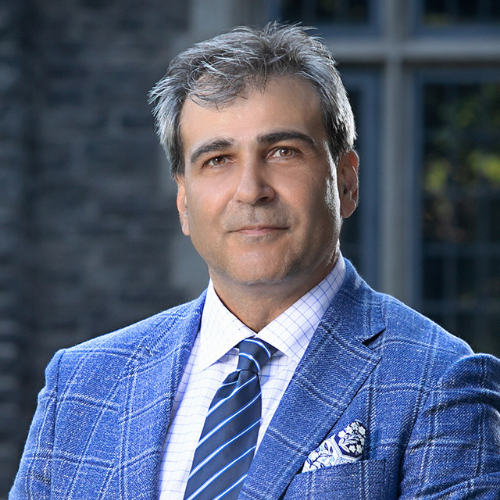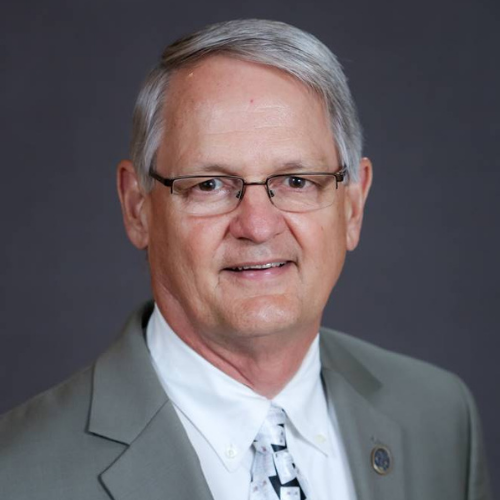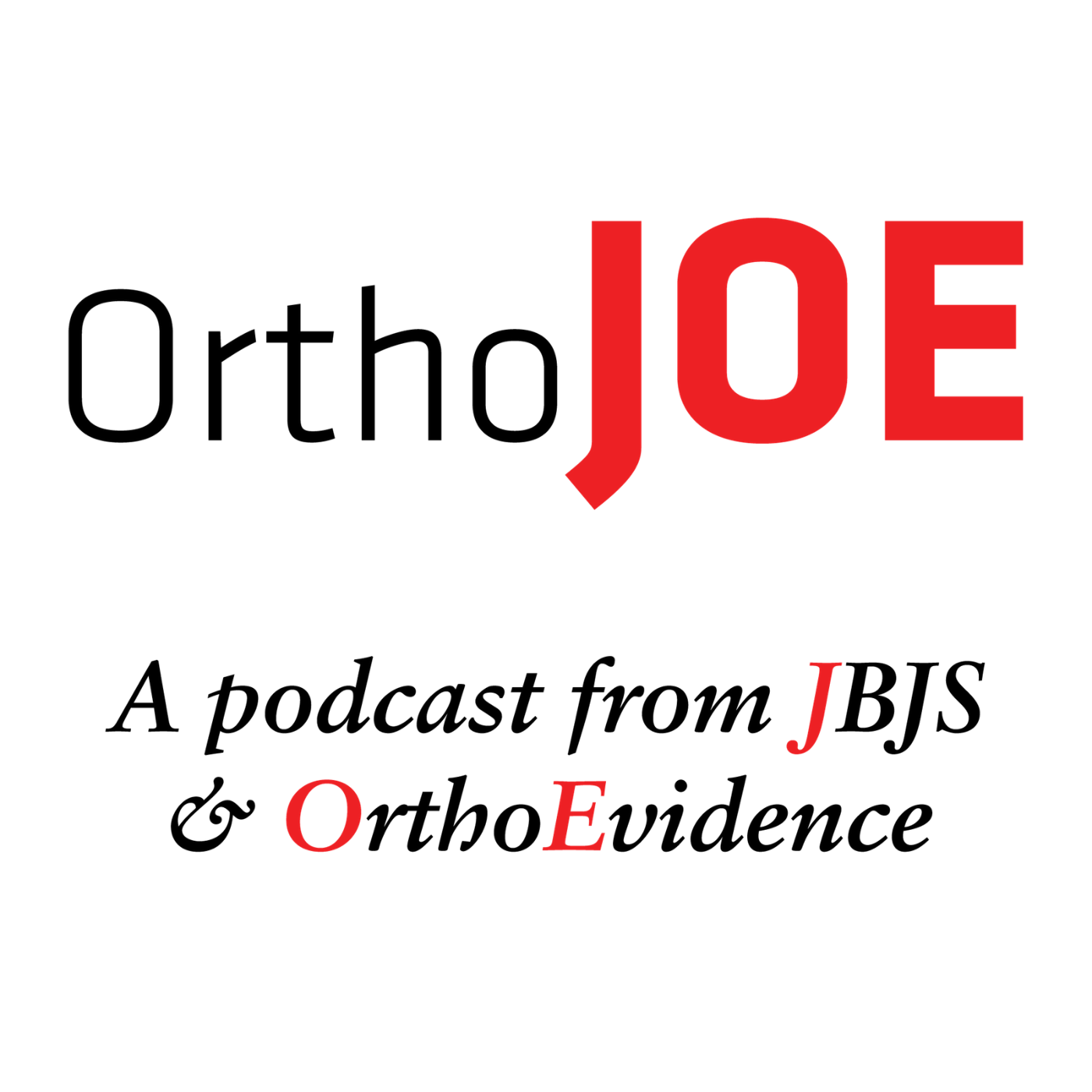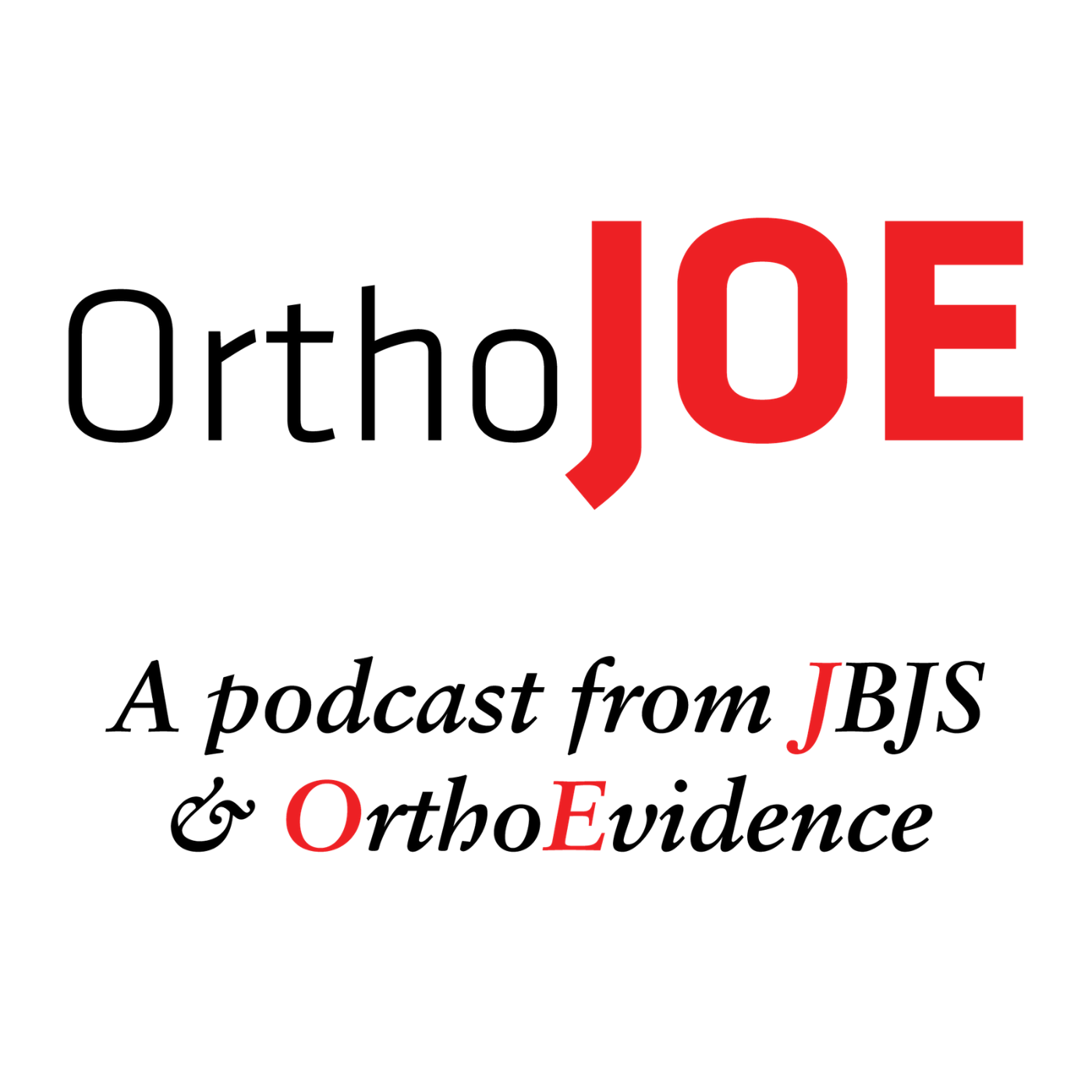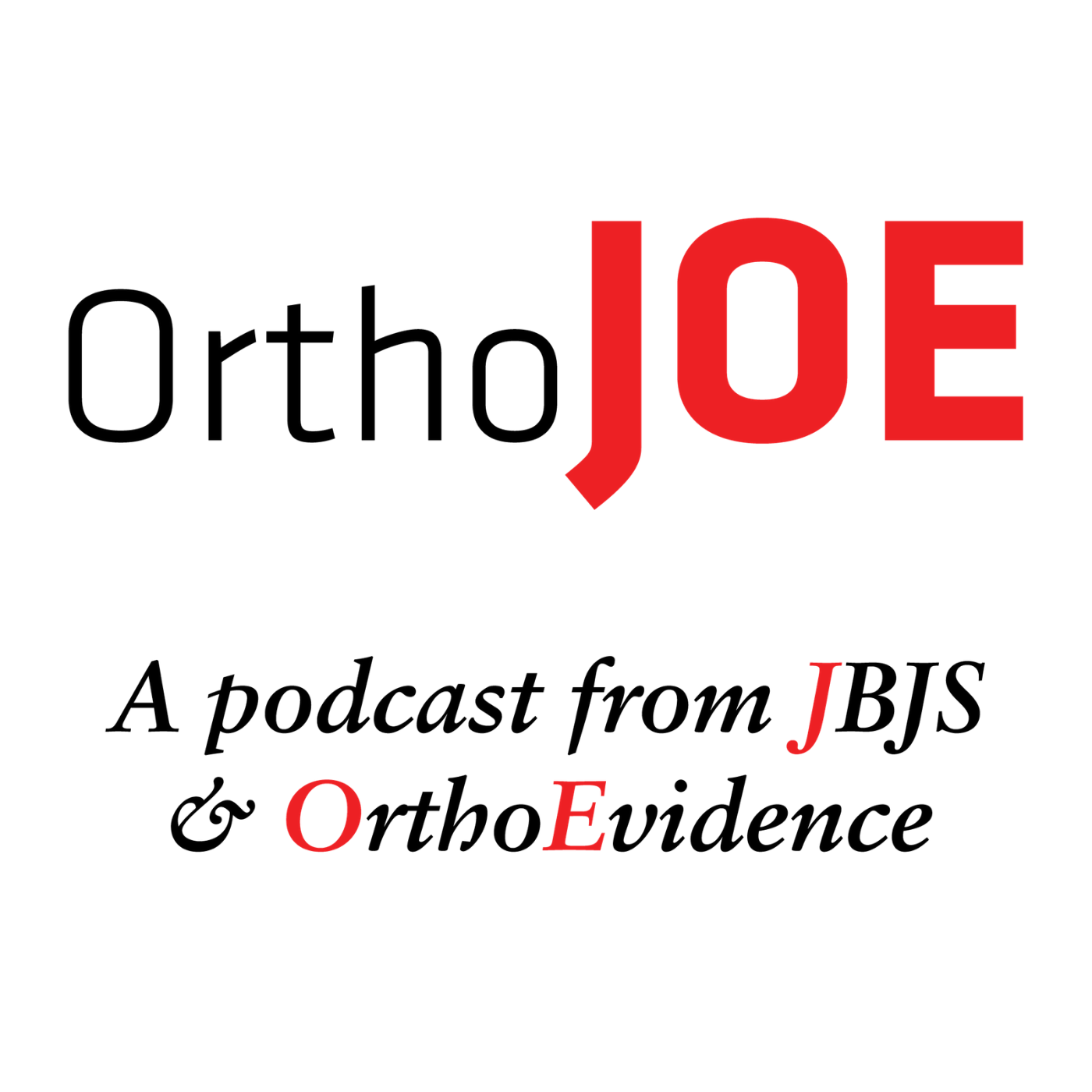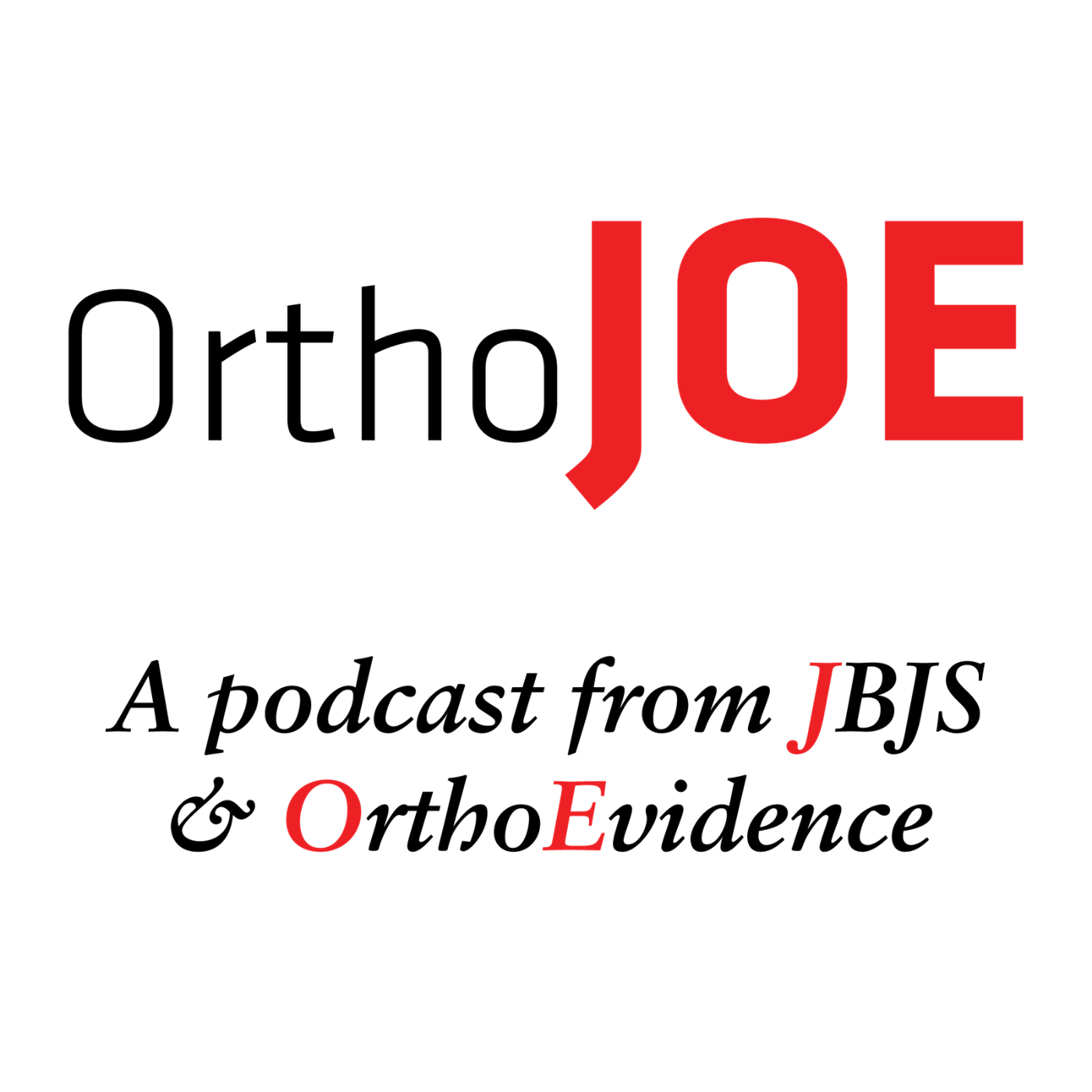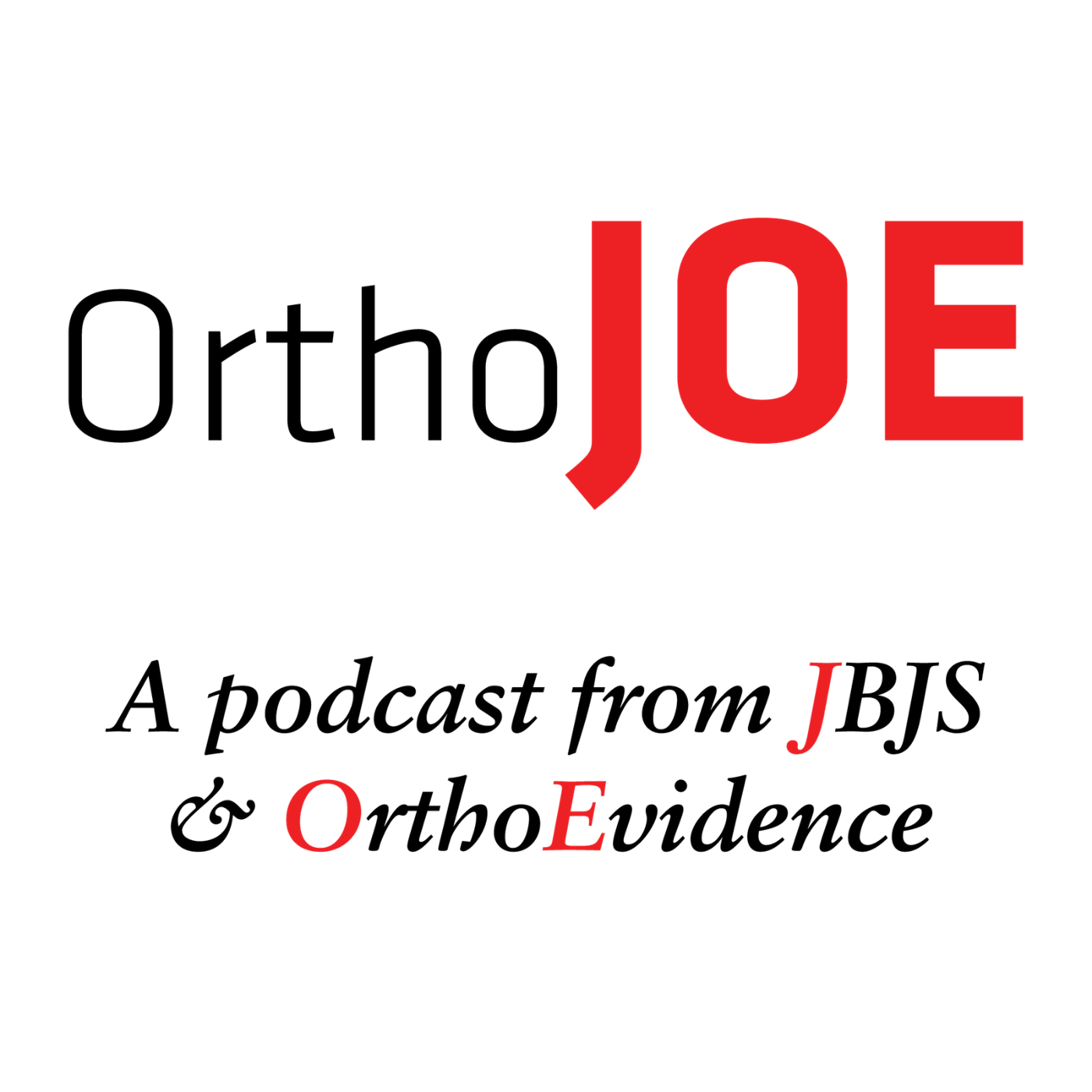Episode Transcript
[00:00:03] Speaker A: Welcome to JBJS Ortho Corps. Listen as members of the Ortho community, residents, surgeons, educators, staff and patients share their stories about the experiences and people most important in their lives and the lessons they learned along the way. Orthocorps is an audio archive inspired by StoryCorps and independently organized by the Journal of Bone and Joint Surgery.
[00:00:28] Speaker B: The Mid America Orthopedic association meeting in San Anton county of Texas.
We had the opportunity today. Dr. David Markle, who has been a long term member of the organization and who has recently been named the second Vice President, will be the presidential line and he has agreed to talk to us today about his experience with the mid America.
Thanks Dr.
Merkel for joining us today.
[00:00:59] Speaker C: Thanks for having me.
[00:01:02] Speaker B: I. I'd be grateful if you just kind of tell folks about your practice and how you got started and what your present stat up to the present status. We can get into a little bit about how you have the team involved with.
[00:01:16] Speaker C: I'll start with so fair practice, you know. I trained at the University of Michigan and then did a fellowship at Special Surgery and changed my thinking a little bit when I was there that originally I had wanted to come back to my hometown in Ann Arbor, enjoy the local practice there, but there was no job, which was problematic.
Also as a fellow I sort of was looking at becoming more academic and there weren't very many jobs there either. And out of the blue I got called by a recruiter to come back to the Detroit suburbs and there was a job at a community hospital that also for some reason had a residency. They also had some laboratory facilities and were aligned with one of the universities.
And I've been told by my current residents that I am a dinosaur in that I am still in the same job that I took after fellowship.
The interesting thing is I've sort of stayed the same and all of the things around me keep changing and it feels like you're the only static piece in this ever changing environment.
So in some ways that's very good. In some ways it's quite disconcerting.
But you know, we were a private practice, sort of a private demic kind of practice and we've been able to maintain that for a long time.
We're going through some changes now. We're probably going to end up integrating a little bit more with the hospital as the market forces have changed and around in around Detroit.
But the foundations of what I do relative to daily practice and managing the residents as I do run the residency program really are not dramatically different than they were 25 years ago.
The Mid America is interesting because I first came as a resident and there's actually a funny story that I share with my co residents. It's probably not appropriate for this talk, but the Mid America was, you know, the Michigan Orthopedic Society. So the state society was reachable as a resident. The Mid America was sort of the next step up and you know, as you would, you could get papers on there and it was a big meeting and you know, then there were things like the Academy. But Mid America really was really fundamental because it was a meeting where you could come, it was, you could be on the podium, it was low key and you got to rub shoulders and elbows and be welcomed as a colleague by, you know, the guys from Iowa and the guys from Mayo and you know, Kevin Garvin and the guys from Nebraska.
And they treated you like a peer, you know, not a trainee necessarily.
And I think that was really foundational.
Early on I actually had the chance to get the traveling fellowship from in America and just went to places of people I'd met visiting at the meetings and that ended up being really helped found some great friendships and long term partnerships as well.
[00:04:28] Speaker B: You have had a lab, I mean you, you run a clinical practice but you also do a lot of laboratory based stuff as well as outcomes and everything else.
[00:04:37] Speaker C: I kind of fluke into that. When it's funny talking to students in Residents, it's very easy for us to look at a clinical condition.
We did something to the patient.
Let's dig through all the charts and figure out if it worked.
And I always found that really challenging to do the data. Half the time wasn't there.
We start up going through shuffling through paper charts.
You know, then early EMRs were challenging and when I first came back, I started working with the guys at Wayne State in the bioengineering lab.
And you know, it turns out that with an appropriately designed project, particularly if you're doing pure benchtop work or animal work, you know, it's planned out. So on January 1st you do whatever you're doing to the animals. On January 7th is the next step. On January 14th you harvest your data and it's done. And then you could project what you're going to do and you can have defined timelines and really good endpoints to drive study.
The other part that seemed that was missing and I've been very fortunate to have fallen into that space that we have amazingly smart scientists and engineers and we have amazingly smart clinicians and there's this void in between and you can see that now in the ORs. If you go to the ORs, there's essentially no surgeons anymore and we sort of lost the language to talk to each other. And so I sort of have put myself to try to fit in as a translator between the scientists and the clinicians. And it's been a, you know, a very gratifying role because you're sort of staying in the middle of people that are smarter on both sides and you can, and you get to share in their knowledge and grow with that. So that's been really, really very fortunate for me.
[00:06:42] Speaker B: And you've been able to bring a lot of that work to the Mid America as well as multiple already.
[00:06:48] Speaker C: Well, I tell you, we have, you know, it became clear early on that you, you know, again running a program, you know, between the resident travel grants, the resident research grants, the opportunities in a meeting, mind you, that is still multi specialty. So everyone is gravitating right now to their subspecialties and they want to sort of be very narrow in their thinking.
Whereas, you know, just today it's important, you know, even though you're a very narrow hip and knee surgeon to sit in a room and hear the trauma guys talking about fixing femoral head fractures or you know, the hand and foot people talking about other things that, you know, you're sort of hearing about, but you can learn about it. I think it definitely promotes and helps us all grow. And you know, I was very worried at the academy this year as to whether the academy can survive because the younger surgeons don't really want to go to this big multi specialty meeting.
But I feel much better coming here today because you can see that it's it, you know, the multi specialty part is still vibrant and it may be that the regional societies are what are going to drive that.
[00:08:01] Speaker B: Do you have, have you seen much change in the Mid America over the years that you've been participating?
[00:08:10] Speaker C: Only that the leadership now doesn't seem old and the membership seems young.
[00:08:18] Speaker B: What do we know that you're about to.
[00:08:22] Speaker C: And I do want to give a shout out, you know, for, for many years Pam and Sue sort of really ran everything behind the scene. And Pam I guess is retiring.
Everyone gave her a nice send off the other night. But you know, we, we sometimes forget that it takes an enormous amount of work to put on a meeting and you know, just to have, if you've ever done it, to have the pot of coffee in the breakout room, right, with cups and hot, right is a super challenge of people, is a 300 people. Right. It's a super challenging.
[00:08:58] Speaker B: Yeah, yeah.
You're going to have the opportunity now, as you're in the presidential line to begin to see. To help guide the direction of the organization. Do you think?
I mean, it seems there's been a very consistent pathway for this group. But do you see some things that can help? Right.
[00:09:23] Speaker C: It's a really good question and I've actually been thinking about it this weekend.
There's ebbs and flows to attendance at these meetings and willingness to send p faculty and residents or people to take time out of their practice. And I think it's getting harder and harder and I think we may have to really just have a special outreach to, you know, one all the program directors in the region because there's a lot of residential programs. It's a good opportunity.
But as well as to the private practitioners and more of the local people. I had dinner last night with two people are here at the meeting and they're non members.
And it was. They're from northern Wisconsin and they're like we needed to get out of Dodge for the winter. This looked like a really good meeting.
I can learn something, play some golf or 10, you know, go to the beach, whichever meeting we're at.
And I think there may be an opportunity to appeal to more people like that because as we heard from the some of the wellness talks today, we probably all need to take a step back and take a little time. And this is a really good opportunity to sort of mix business with pleasure and bring your families to meet your colleagues. I think it's a really good thing.
[00:10:39] Speaker B: Not that we disagree.
We're all on that same page and we're looking forward to your leadership. Is there any other comments you want to make to those who.
[00:10:47] Speaker C: No, I just.
[00:10:47] Speaker B: Thank you.
[00:10:48] Speaker C: I really look forward to the opportunity to serve and I welcome everyone to come to future meetings.
[00:10:53] Speaker B: Great. David, thanks so much for your time.
[00:10:55] Speaker C: Pleasure.
